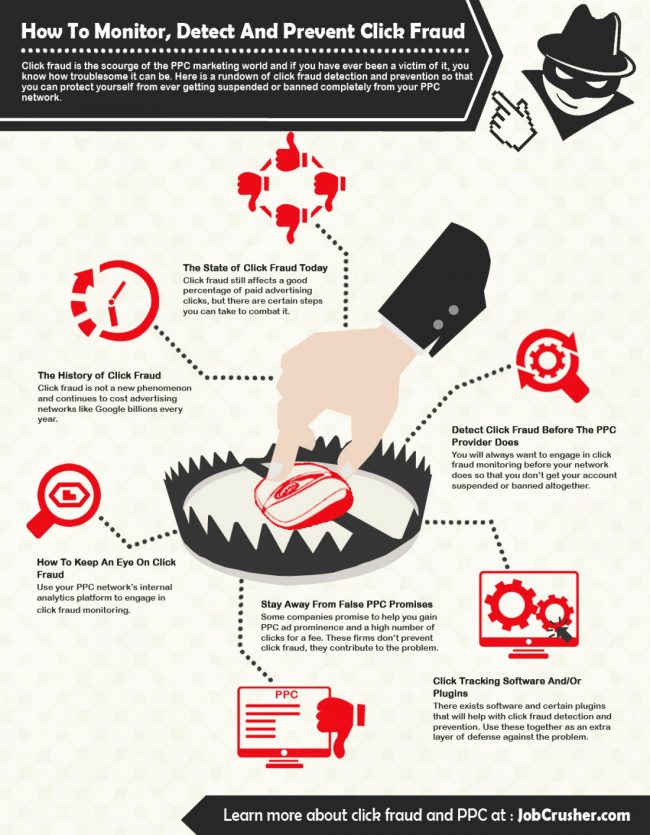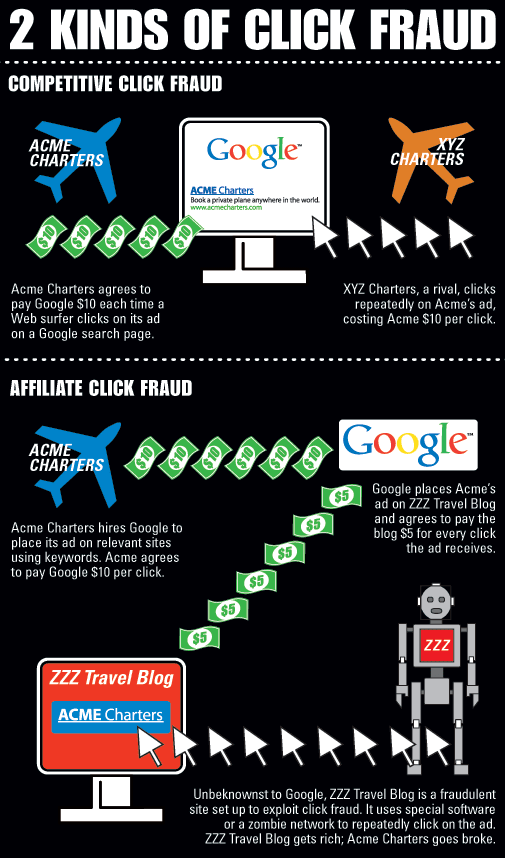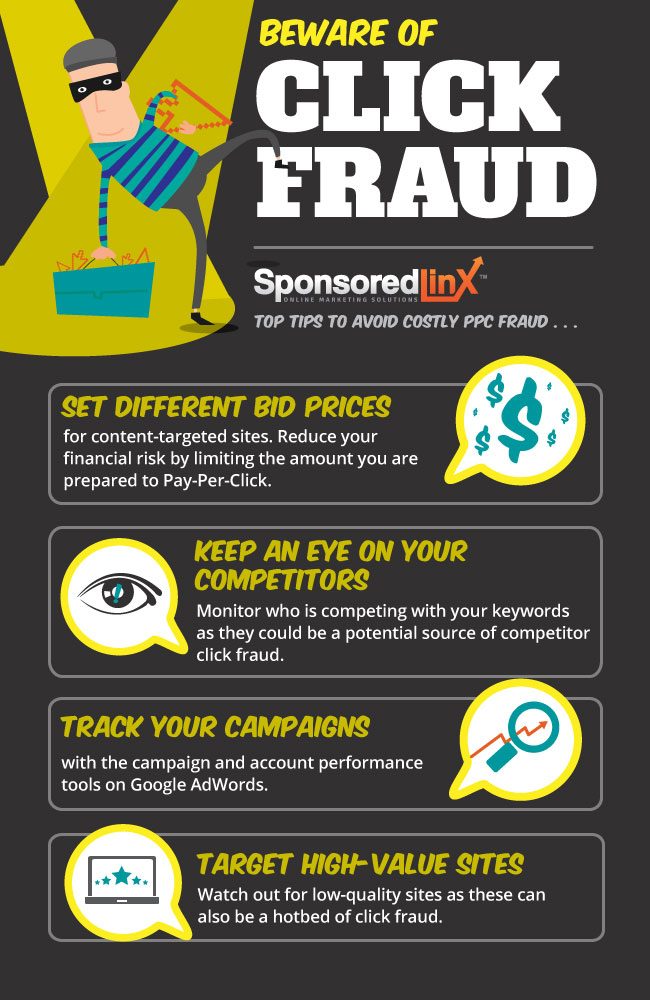The world of ads for selling real estate has been changed forever since the internet came around. “If you’re not online, you’re behind,” this sums up
The world of ads for selling real estate has been changed forever since the internet came around. “If you’re not online, you’re behind,” this sums up the way that companies changed their business models. Since owning a website has become mandatory, companies have shifted their focus to digital, including advertising. Like any good party, there is always someone who brings down the vibe. And, in the realm of digital advertising, this person is click fraud.
What Does Click Fraud Have to Do With Selling Real Estate?
To understand click fraud, it’s important to understand how online advertising works. If you currently have digital advertising in your budget or are considering it for the future, listen up. Potential customers are constantly browsing websites, making advertising on those sites important. These ads get more eyes on a business, making the task of selling real estate a whole lot easier.

Choosing websites with a lot of traffic like Google, AOL and Yahoo, advertisers ask that they feature advertisements for their products and services in exchange for payment every time an ad gets clicked. Essentially, if Google has an ad for a real estate broker on their homepage, the real estate broker must pay Google a certain dollar amount for each time the ad is clicked by someone. According to president and CEO of Click Risk, Adam Sculthorpe, advertisers are shelling out $10-$12 per click.
Seems like a win-win right? Wrong…
What is Click Fraud?
The network through which this “pay for click” model works is actually full of affiliates who also make money through the process. In a former interview, Sculthorpe announces that this affiliate network accounts for 43% of Google’s revenue, which is around $675 million, just in one quarter. This is the motivation for affiliates to belong to Google’s Adsense program. Every time that an ad gets a click, affiliates will collect 65%-70% commission.
This is where click fraud comes into play. With such a large commission on the table, affiliates figured out that they could make money by clicking their own links. Using an automated system, paying others to sit around and click ads or clicking the ads themselves, these affiliates are earning big bucks while sending false leads to the advertisers.
To put it concisely, people who don’t intend on ever purchasing the real estate your selling, are clicking through the advertisements just to earn a commission.

Aside from this affiliate fraud, competitors have jumped on the bandwagon and are using competitive clicking as part of their strategy to take down the competition. Through this method, competitors who are also selling real estate will click another company’s links constantly in order to deplete their advertising budget.
According to Sculthorpe, in the years between 2003 and 2005, they detected about $400-$500 million in fraud.
Click Fraud Can Be Detrimental to Your Business Selling Real Estate
Click fraud is especially dangerous for businesses because it is extremely difficult to identify and stop. Search engines like Google are unable to tell which clicks are real people and which clicks are fake. Sculthorpe has found that click fraud may be as high as 70% of traffic but is on average, 15%. Clients come to him at Click Risk to try and remedy the situation, and he has seen businesses that have almost shut down due to the finances they lost from fraudulent clicks.
Companies are losing thousands of dollars from the fake clicks. However, they are often spending thousands on trying to stop them, putting a huge financial strain on their budgets. A few class action lawsuits have been filed to try and remedy the case, but it’s very difficult to prove. Criminals will spend millions of dollars to cover their trails and build fake accounts.

Selling real estate through online efforts is vital. However, knowing what you now know about click fraud, it’s important to evaluate the pay per click method. Are you being duped? And, is your company losing money and business because of it? Ask yourself these questions and keep your business safe.




 Where do we send your free Great Agent demo?
Where do we send your free Great Agent demo?





 We just need some facts about your organization:
We just need some facts about your organization:
COMMENTS